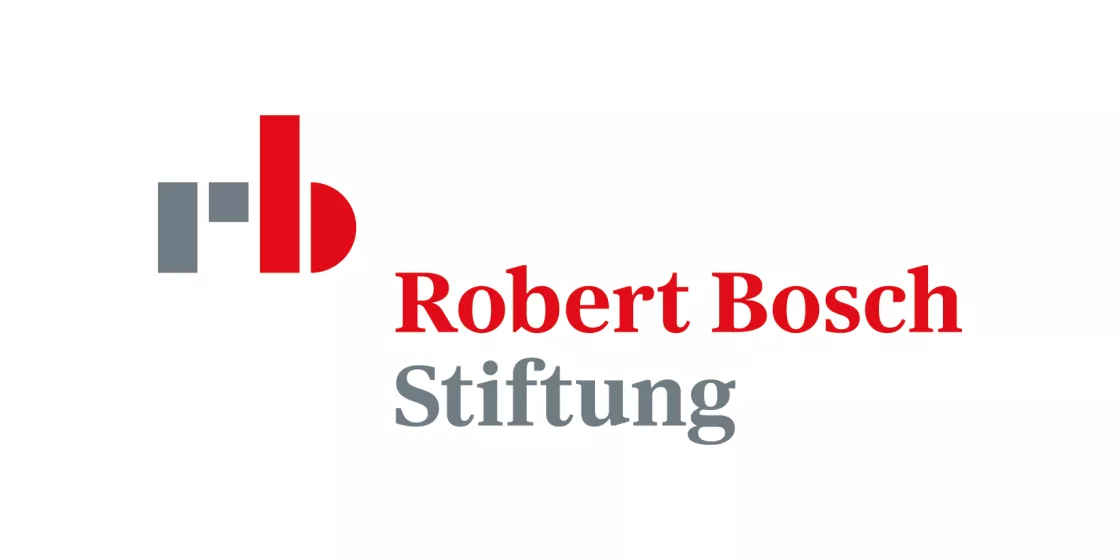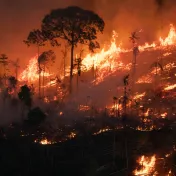Deforestation, overexploitation and climate change threaten forests around the world. The European Union also plays an inglorious role in this. To change this, the European Commission presented yesterday a legislative proposal to prevent products from forest destruction from entering the EU internal market in the future. At the same time, a general EU supply chain law is being planned. Is the EU Commission duplicating its efforts? No, say Julia Otten and Johannes Heeg.
Europe is a world runner-up in forest destruction, according to a WWF study earlier this year, which found that the EU is responsible for 16 percent of global tropical deforestation and nature destruction, more than India or the USA.
The reason? The EU imports many raw materials that contribute to forest destruction in Brazil, Indonesia, Paraguay and Argentina, for example. These include soy, palm oil, but also beef, wood products, cocoa or coffee. One can, therefore, speak of “imported deforestation”.
But even within the EU, products from forest destruction and huge tree clear-cuts end up on the EU internal market, coming from Sweden, Finland, Romania and Poland, for example. The EU now wants to take action against this. On Wednesday, 17th of November, it presented a corresponding legislative proposal on deforestation.
In parallel, the EU is currently discussing a Europe-wide supply chain law, which would oblige all companies above a certain size to exercise human rights and environmental due diligence along their supply chains, regardless of their industry.
Is the EU Commission duplicating its efforts with the two proposals? And wouldn’t an overarching supply chain law be sufficient to prevent deforestation? No, because the two projects pursue different approaches. However, they must be considered together.
Where do the two legislative proposals come in?
In the case of the proposed legislation for deforestation-free supply chains, the EU is pursuing a product-based approach: certain critical products that are linked to the destruction of forests or specific ecosystems should only be allowed into the EU’s internal market if they meet certain criteria.
The interesting question, then, is which products are considered “critical.” Germanwatch and other environmental organizations are calling for the inclusion of at least soy, palm oil, rubber, beef, leather, poultry, coffee, cocoa, wood and corn.
In the future, companies that want to sell or trade such products in the EU will have to prove that they have done their due diligence and that their product has not contributed to deforestation before entering the market. To do this, they must introduce risk management and submit a due diligence declaration to the EU authorities. The demands of European environmental organizations on this process are summarized in this position paper.
Is the EU Commission duplicating its efforts with the two proposals? And wouldn’t an overarching supply chain law be sufficient to prevent deforestation? No, because the two projects pursue different approaches. However, they must be considered together.
On the other hand, the planned general EU supply chain law has a different approach: it is not product-related, but company-related. The idea behind it is that it would apply not only to manufacturers of particularly critical products, but to all companies in the EU above a certain size.
Binding due diligence would require companies to prepare risk analyses and continuously check whether there are risks to human rights and the environment in their global supply chains. If risks are identified, companies are to take measures to eliminate or prevent them, and when damage occurs, companies must also make amends and remediate. Such an EU supply chain law could have a preventive and widespread effect.
Two laws, one goal?
The two projects thus pursue different approaches: product-based and company-based. They also differ in their scopes of application (who is affected by them) and in the enforcement of their requirements. But why this dual approach when the goal of ending environmental degradation and human rights abuses in supply chains is comparable?
First of all, it is not atypical for the EU to make regulations only for certain sectors, such as the Conflict Commodities Regulation and the Fisheries Regulation, which impose certain human rights and environmental requirements on imports.
Similarly, the Global Forest Conservation and Deforestation-Free Supply Chains Act would address a specific problem: deforestation. In doing so, it can address specific supply chains, such as those of agricultural products, and define very concretely what kind of deforestation and interventions in ecosystems are prohibited.
A strong EU supply chain law would provide a common umbrella for these important individual regulations. It would ensure that all companies must take due diligence measures to prevent human rights abuses and environmental degradation, and it would do so no matter what industry they work in or what products they trade. This law could close loopholes. After all, whenever regulations only apply to certain products or countries, some companies will try to circumvent them.
Nevertheless, the mentioned regulations are indispensable: they help to address the problems in very specific areas and, in doing so, can go into more detail than the EU supply chain law ever could.
Two weak laws do not make a strong one
The draft law presented by the EU Commission yesterday is a step in the right direction. But according to many environmental organizations, it is not sufficient in its current form to effectively protect forests and other ecosystems.
It excludes the rights of victims to remediation and does not include civil liability as per a previous demand of the European Parliament. Contrary to initial plans, the draft does not classify rubber – a product that is widely used by the European automotive industry – as “critical”. In countries such as Cameroon, rubber is associated with forest destruction and the displacement of indigenous peoples. Certain threatened natural areas like the savannah forests in the Brazilian Cerrado are also left out.
The EU Commission has therefore weakened its draft at the last minute. There is an urgent need for improvement in these areas.
The Commission’s announcement of a new human rights and environmental due diligence law is expected in December. The German supply chain law can only serve as a model to a limited extent. To protect those affected by corporate abuse, the EU draft law must go well beyond the German one. The content of the draft law will show how serious it is about effectively ending human rights violations and environmental destruction in the supply chains of European companies.
As much as the two legislative initiatives interlock and complement each other, it is also clear that two weak laws do not add up to a strong one.
Our engagement for sustainable agricultural supply chains that protect the environment and human rights is supported by the Robert Bosch Stiftung.






